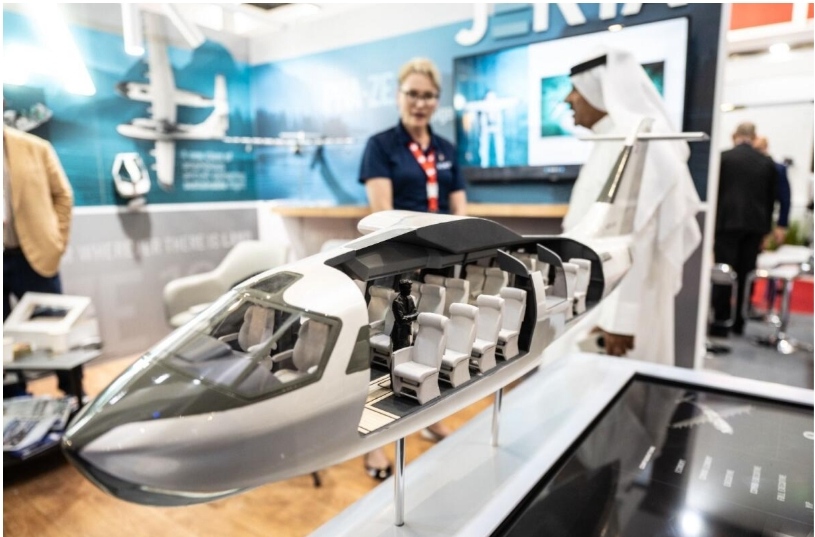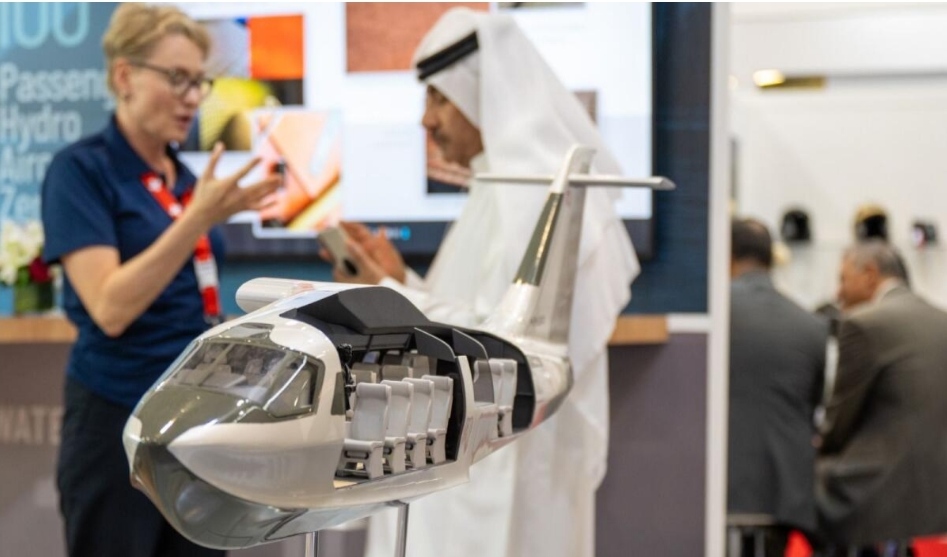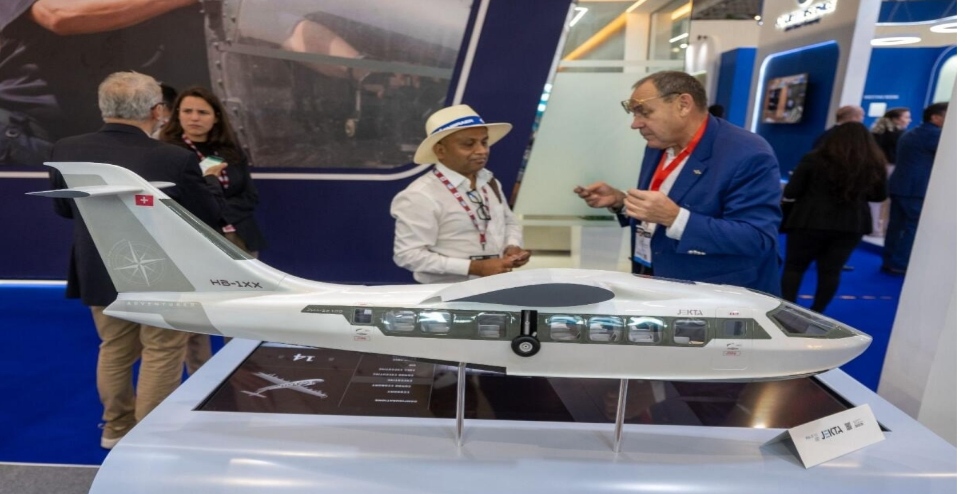19-seater electric seaplane could transport passengers between the Emirates
Swiss manufacturer signs letter of intent with Dubai-based company for 10 aircraft
By Nandini Sircar

Amphibious electric airplane in Swiss pavilion at the Dubai Airshow at DWC Dubai World Central Al Maktoum International Airport on Tuesday, November 14, 2023. Photo by Shihab
A prototype of a 19-seat commuter seaplane, entirely powered by electricity, is gaining traction in the UAE market.
Jekta, a Swiss electric seaplane manufacturer, debuted its latest creation at the Dubai Airshow. Its innovative design offers more sustainable and cost-effective transportation for people in mega-cities and coastal regions like the UAE.
Passenger Hydro Aircraft Zero Emissions, or PHA-ZE 100, is an amphibious aircraft -slated for market entry in 2028.
“Jetka is developing the phase 100 which is a fully electrically powered 19-seat, regional amphibious flying boat,” Jane Stanbury, Head of Communications of Jetka, told Khaleej Times. “Flying Boat means that it lands on the whole (body) not on floats. So, that’s the big difference, and that gives it much more stability and increases its operational capacity. As an amphibious aircraft, it can land on water, and land on any waterway, which could be a lake, a sea or river.”
Lower passenger fares
The seaplane is an electric aircraft, which means it leaves no emissions at all, enabling people to travel in a safe, cost-effective, and environmentally friendly manner.

Photos: Shihab/KT
“One of the key elements of this aircraft is that it’s aiming to reduce operating costs by up to 70 per cent. That means passenger price fares will be lower, yet the operator will still make a profit,” said Stanbury.
“The reason they can do it is because it’s not a regular engine, there’s no maintenance required. It has carbon fiber. It’s very easy to maintain. So, that reduces the operating costs. The potential is huge,” she added.
In 2022, the rise in passenger and cargo transport after the pandemic resulted in a 3 per cent upsurge in carbon dioxide emissions from transportation compared to the prior year.

Between 1990 and 2022, transport emissions displayed an annual average growth of 1.7 per cent, surpassing all other sectors except industry, which also grew at a similar rate.
Meeting the Net Zero Emissions (NZE) goal by 2050 requires a yearly reduction of over 3 per cent in carbon dioxide emissions from the transport sector until 2030.
“The idea behind it is to connect those that are separated by large tracts of water. Countries that have that are island nations like Malaysia Philippines, and Thailand. In India, they have a development for 94 waterway routes. I see much potential in the Middle East.”
Stanbury explains the first letter of intent (LOI) has been signed with a Dubai-based company, with an agreement for the acquisition of 10 aircraft.
“It is like an experiential travel. You could put kayaks or could put scuba gear. Imagine you take off from Dubai, you go to the sea, you dive where you land, get back on board and you fly back to Dubai. So, it’s a very flexible, multifunctional, and multi-service operational vehicle.”
Source: Khaleej Times




